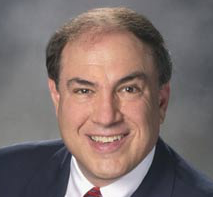Industry Insights
August 14, 2017
Gelman: The Facts Don't Change Because You Try a Case
- National
- - 0 shares
In my early days in the practice of law, when I was eager to try every case, my dad, a lawyer, used to remind me that, "The facts don't change because you try a case."

Jon Gelman
I was reminded of that adage while reading a recent New Jersey Appellate Court's opinion, where a respondent unsuccessfully appealed the trial court's decision.
In that case, the parties agreed to submit the case on reports, and the issue was the nature and extent of the injured worker's disability. The worker had an accident in 2011, and an order approving settlement was entered on the record in October 2012 for 22.5% of partial total disability.
While the petitioner testified in person about his increase in disability, the parties agreed to submit the new treating physician's and medical experts' report into evidence, thereby waiving their right to cross examine the witnesses.
The judge of compensation (JOC) reviewed all the evidence and rendered an oral opinion from the bench, awarding an additional 20% of partial total disability. The JOC outlined her opinion and reasons in detail after a thorough evaluation of the evidence.
The respondent appealed the award, alleging that the judge had not thoroughly reviewed the evidence. In an unreported per curiam decision, the Appellate Court affirmed the JOC. It is noteworthy to focus on the Appellate Court's rationale:
"Respondent's argument is based largely on parsing out and isolating different parts of various medical records and reports, rather than construing them as a whole. In addition, respondent is critical of petitioner's expert's reports because the reports' explanations concerning the extent of petitioner's increased disability and the causal relation of that increase to the original accident does not contain sufficient elaboration. Yet, by agreeing to present the medical evidence in reports rather than by experts' testimony, respondent now criticizes the JOC for doing precisely what the parties tasked her with doing; namely, reviewing the documentary evidence as a whole and determining the credibility of conflicting reports based on all the documentary evidence as well as petitioner's testimony. That is precisely what the JOC did, and her findings are amply supported by the documentary evidence and petitioner's testimony."
The facts don't change because you try a case.
Claimants' attorney Jon L. Gelman is the author of "New Jersey Workers’ Compensation Law" and co-author of the national treatise "Modern Workers’ Compensation Law." He is based in Wayne, New Jersey. This blog post is republished with permission.
Advertisements
Columns
- Snyder: Public Benefit Rules Have Changed, but It Might Not Make a Difference 04/12/24
- Headrick: Clearing Up a Common Misconception 04/11/24
- Snyder: Litigation Guidelines Should Define Four Settlement Triggers 04/10/24
- Kirsch: Depositions of Comp Carrier Employees After Intervening in Third-Party Actions 04/09/24
- Wilson and Bennett: Could AI Have Prevented the Opioid Crisis in Workers' Comp? 04/08/24
- Moore: Pandemic Effect Over in March 2027. Really? 04/05/24
- Geaney: A Brief History of Our State's Workers' Compensation Act 04/04/24
- Kamin and Larres: Significant Panel Decision Clarifies Recon Confusion 04/03/24
- Gelman: Exposed to 'Forever Chemicals' 04/02/24
- Montgomery: Cyberattack Delays Payment of San Francisco Bills 04/01/24
- Young: Indoor Heat Regs in Turmoil 03/29/24
- Langham: Shootings and Compensability 03/27/24
- Geaney: Third-Party Liens Not Always Due Right Away 03/26/24
- Larres: State Supreme Court Denies Review of Our Appellate Win 03/25/24
- Moore: Recordkeeping and Your Remote Premium Auditor 03/22/24
- Switzer: Important Change Coming Soon 03/21/24
- Moore: Basic AI Claims Adjuster Assistant Works Well 03/19/24
- Montgomery: Availity to Return Providers' Bills 03/18/24
- Kamin: New Bill Would Clarify and Allow More Electronic Signatures 03/15/24
- Snyder: How Thorough Do You Have to Be? 03/14/24
Now Trending
- Workers' Compensation News
-
Calif. WCAB
Proposes $40k in Sanctions, Alleges
Pattern of Misusing Recon to Delay…
Posted on Apr 11, 2024
-
Calif. Committee
Passes TD Expansion, Ag Worker
Protection…
Posted on Apr 12, 2024
-
Calif. Senate
Committee Hears Comp Bills…
Posted on Apr 10, 2024
-
Calif. Worker
Waits Too Long to Sue Over Alleged
Chemical Exposure…
Posted on Apr 12, 2024
-
Calif. Contractor
Pleads Guilty to Underreporting…
Posted on Apr 15, 2024
-
Ill. Traveling
Employee Gets Award for Injuries
From Fall Down Stairs at…
Posted on Apr 10, 2024
-
Calif.
Chiropractor Sentenced to More Than
54 Years, Fined…
Posted on Apr 16, 2024
-
Ohio Worker Gets
Writ for Reconsideration of Job
Offer…
Posted on Apr 9, 2024
-
S.C. Supreme Court
Expresses 'Profound Concern' With
Administrative Denial of…
Posted on Apr 12, 2024
-
N.Y. Business
Owner Accused of $236,515 Premium
Fraud…
Posted on Apr 10, 2024
Jobs
Upcoming Events
May 5-8, 2024
Risk World
Amplify Your Impact There’s no limit to what you can achieve when you join the global risk managem …
May 13-15, 2024
NCCI's Annual Insights Symposi
Join us May 13–15, 2024, for NCCI's Annual Insights Symposium (AIS) 2024, the industry’s premier e …
May 13-14, 2024
CSIA Announces the 2024 Annual
The Board of Managers is excited to announce that the CSIA 2024 Annual Meeting and Educational Con …
Social Media Links
c/o Business Insurance Holdings, Inc.
Greenwich, CT 06836





No Comments
Log in to post a comment